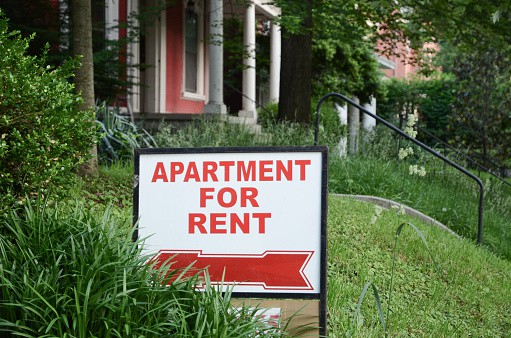Personal Finance
I Always Dreamed of Owning Property, But These 9 Factors Convinced Me Not To Be a Landlord

Published:

Like most kids, I grew up playing board games. One of my favorites was Monopoly. I liked it so much I’d play it by myself if nobody else wanted to. Money was scarce in our family, so I gravitated to the idea of becoming a landlord and having others pay me rent. Maybe I wouldn’t even have to work . . . then I could play more Monopoly! Some people do move this dream from fantasy to reality, and one of them was my Dad. His rental properties help fund my parent’s retirement today. But I also learned in no uncertain terms, I do not want to be a landlord, and here’s why.

Being a landlord might seem like easy money, but it’s hard work, requiring business savvy, human relations skills, and more than a little elbow grease. 4 million Americans are set to retire this year. If you want to join them, click here now to see if you’re behind, or ahead. It only takes a minute. (Sponsor)
Key Points

Everyone these days is looking for sources of passive income. Unless you’re drawing money from a trust fund, though, there really is no truly passive source of income. Like anything else, being a landlord takes work. And its a kind of work most people wouldn’t choose, after they experience it firsthand, even if they had the money to get started. Listening in on my parent’s discussions, as one does, taught me that you never forget the fact that you’re a landlord. There’s always something going on with your rental properties.

The mortgage payment is the most obvious cost of rental property, but if that’s all the rent covers, you’re in trouble. Property taxes, homeowners insurance, routine maintenance, and unexpected repairs can quickly turn even a property with high-paying long-term tenants into a money pit for you. My parents at times had to take out loans against their business and home to cover unexpected expenses from rental properties.

It’s not always easy to find tenants who are quiet, follow the rules, and pay their rent on time, every month. Even the best tenants can sometimes miss a payment, damage property, or get into a dispute with you or their neighbors. Face it, some people are just difficult. Think about the most annoying, high-maintenance coworker you have. Now imagine instead of a coworker, this were your tenant, calling you at all hours, being persnickety about minor problems, and creating drama with other tenants. This image alone is probably enough to cool your interest in rental property. Listening to my Dad talk abut the problems he had with renters is one of the main reasons I’d never want to do it myself.

What if you just hired a property manager to take care of tenant relations, repairs, and everything else you wouldn’t like about “landlording?” This creates a substantial extra expense that cuts into your profits. And do you know a property manager who you could trust completely with your business? If you’re hiring strangers or have property in a distant location where you don’t visit very often, you could have an unethical and neglectful manager who lets the property deteriorate and ignores the complaints of tenants.

There are layers of regulations when it comes to renting that are intended to protect tenants, landlords, the community, and keep a flow of tax dollars flowing to the government. Your buildings need to be up to safety codes. You’ll have to familiarize yourself with fair housing laws and eviction procedures; otherwise, you could be subject to all sorts of fines and lawsuits that will eat up your time and profits. My dad had to evict several tenants over the years but had to jump through legal hoops and at times involve the police to do so.

Interest rates, job markets, and other economic indicators fluctuate and affect rental income. And these aren’t just at the national, state, or even city level. Circumstances outside your control can make rents and property values decline in a particular neighborhood or on a specific street. You could have higher turnover of tenants and longer vacancy periods. But mortgage payments don’t stop during vacancies. Each month you don’t have a renter is a month you’ll need to make that payment out of your own pocket.

You can watch your stocks and mutual funds go up and down online and punch a few buttons during a lunch break to make adjustments. Not so with your property. As a landlord, landscaping, maintenance, repairs, and upgrades are your responsibility. Even if you have insurance coverage, storm or fire damage can cost so much to repair you’ll take a huge financial hit that could take years to recover from. Fortunately, my dad was skilled and fearless when it came to tackling home repairs . . . which I am not!

If you ever need cash quickly, being a landlord is not the way to go. Real estate isn’t a liquid asset. Selling property takes time. If you’re in a rush you may have to take a significant loss to unload a property; otherwise sometimes you will have to wait months before you get your money out of it. Other investments offer better flexibility, though. In addition to stocks, REITs (Real Estate Investment Trusts) can give you exposure to the real estate market without pulling you into the nitty-gritty of actually maintaining bricks-and-mortar.

A rental property can feel like a heavy weight tied around a landlord’s neck. It limits your ability to travel and can involve you in unexpected calls with dissatisfied tenants or their neighbors. You can be dragged into legal disputes and burdened day and night with maintenance emergencies. If you’re not a particularly handy person, you’ll have to learn how to do some maintenance yourself unless you have money to burn.
Clearly, some people love being property owners, so it’s not all bad. If you’ve done your homework about how to be a landlord, have reasonable people skills, and are willing to put in hard work, not just wait for passive income to flow in, then it might be for you. Otherwise, you’ll be more content with little green houses and red plastic hotels than the real thing.
Retirement planning doesn’t have to feel overwhelming. The key is finding expert guidance—and SmartAsset’s simple quiz makes it easier than ever for you to connect with a vetted financial advisor.
Here’s how it works:
Why wait? Start building the retirement you’ve always dreamed of. Click here to get started today!
Thank you for reading! Have some feedback for us?
Contact the 24/7 Wall St. editorial team.